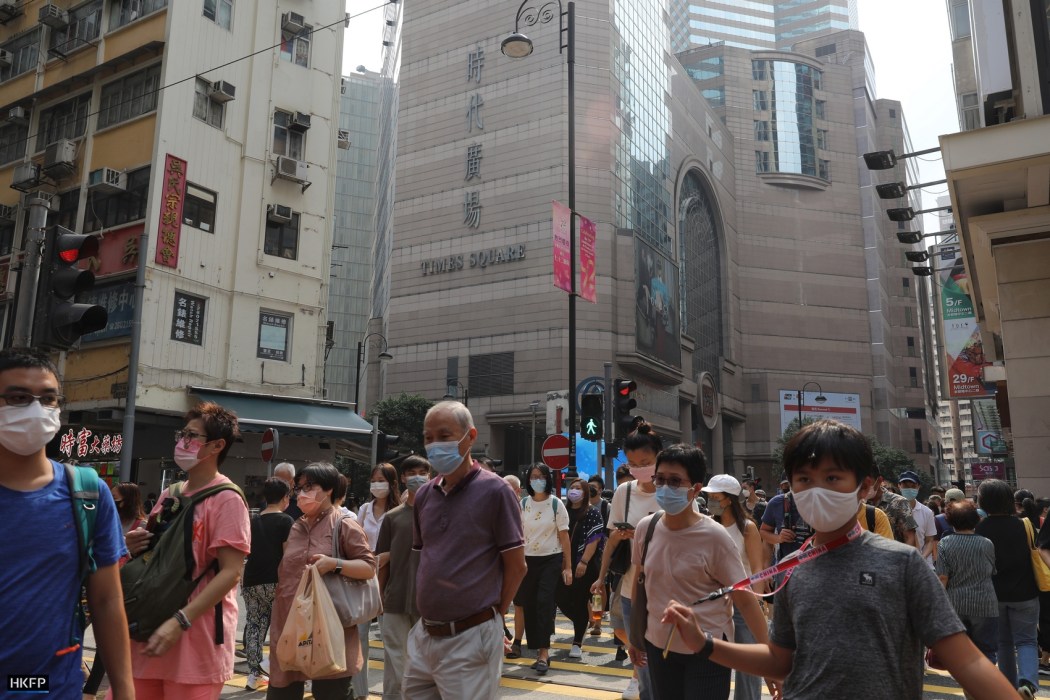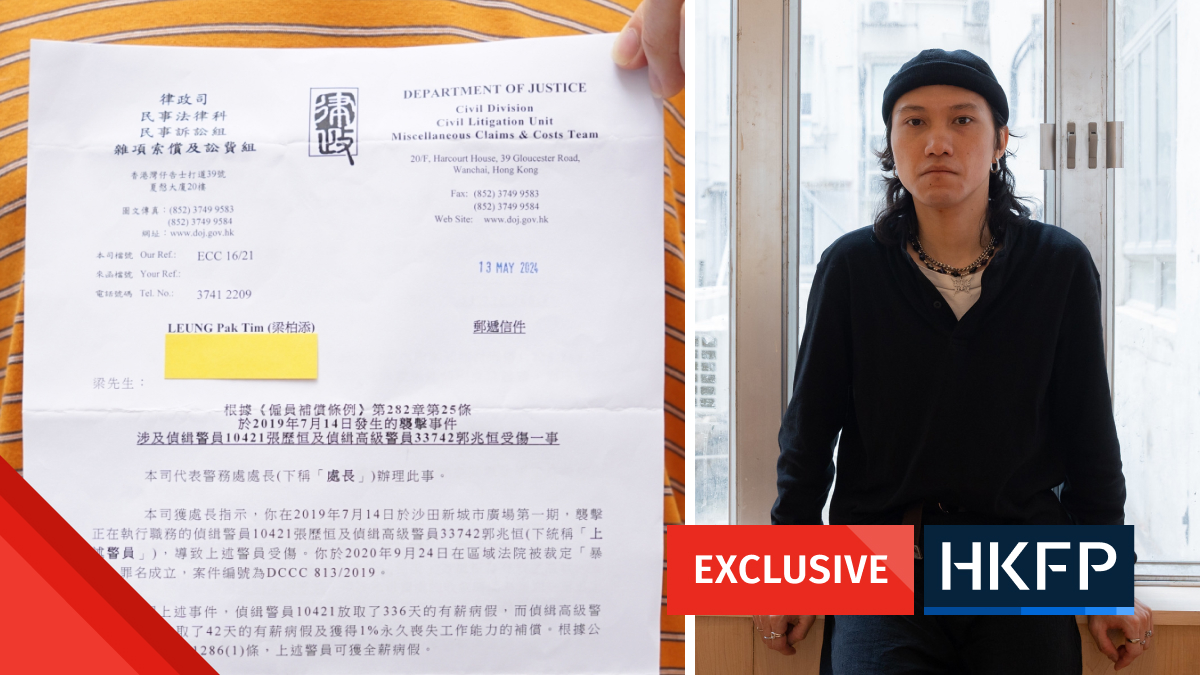The handout of almost HK$30 billion worth of consumption vouchers to more than 5.5 million Hongkongers in an attempt to boost the Covid-stricken economy has had only a limited stimulus effect, neighbourhood merchants say.

Carol Mui, a fashion store owner in a sleepy neighbourhood mall in Kennedy Town, said she saw no difference in revenue after the consumption voucher scheme – worth $5000 to each individual, payable electronically in two or three instalments – was launched. “About 10 per cent of my clients started using electronic payment methods, but revenue didn’t actually increase when I did the maths,” she told HKFP.
Mui said she took the opportunity to sign up for the use of Octopus cards at her store as installation and transaction fees were waived for the first six months under the scheme. But she would return the card terminal once the waiver period expires.

Despite some merchants reporting only a limited effect, overall retail sales jumped by 11.9 per cent in August compared to the same month last year, according to the Census and Statistics Department.
Financial Secretary Paul Chan said the vouchers are expected to bring a 0.7 per cent boost to the local economy, HK01 reported.
But Annie Tse, CEO of one of the city’s jewellery chains and chairperson of the Hong Kong Retail Management Association, said during a radio interview in early October that the surge should be considered in the context of the especially poor sales figures in August last year, when tougher Covid restrictions were in force.

A dip in retail figures in June and July this year also indicated that consumers delayed their spending until they received the consumption vouchers, akin to moving money “from your left pocket to your right pocket,” Tse said.
Retailers in “footwear, allied products and other clothing accessories” saw the biggest rebound compared to other types of businesses, recording a 62.3 per cent year-on-year increase in August, while “optical shops” saw a 60.4 per cent rise compared to the same period last year, government statistics showed.
Jimmy Tsoi, owner of an imported chilled and frozen food store also in Kennedy Town, is among retailers who saw a slight increase in sales after the first instalment of the vouchers was released on August 1. The effect died down in the following weeks and made no difference after the second instalment, he said.

“I didn’t see them spend more than usual or buy more expensive things because of the consumption vouchers,” Tsoi said. “Younger people may save up [the instalments] to buy something more expensive at once. It would feel better than using it to buy small items, or something for daily use.”
Recovery
Simon Wong, chairman of the Hong Kong Japanese Food and Cuisine Association and CEO of a restaurant chain in Hong Kong, said that although business had recovered by about 80 to 90 per cent compared to the height of the pandemic, it was unclear if this could be attributed to the voucher scheme.
“Overall for us in the food and beverage sector, business is better now than the last one or two years, back to about 90 per cent of our normal business, but it’s not possible for us to calculate how much of it was a result of the consumption voucher,” Wong said. “It may be due to a slowdown in the epidemic, the consumption vouchers, plus the [current] atmosphere — many things added together before we got here.”

While he saw a marked surge in business at the start of August when the vouchers were first released, Wong also noted that revenue increased more at restaurants with a lower price range and located in public housing estates, than at more expensive ones in the same group. This suggested that the vouchers may have made no difference to the consumption patterns of wealthier people, he said.
Support HKFP | Policies & Ethics | Error/typo? | Contact Us | Newsletter | Transparency & Annual Report | Apps
Help safeguard press freedom & keep HKFP free for all readers by supporting our team

LATEST FROM HKFP
HKFP has an impartial stance, transparent funding, and balanced coverage guided by an Ethics Code and Corrections Policy.
Support press freedom & help us surpass 1,000 monthly Patrons: 100% independent, governed by an ethics code & not-for-profit.










